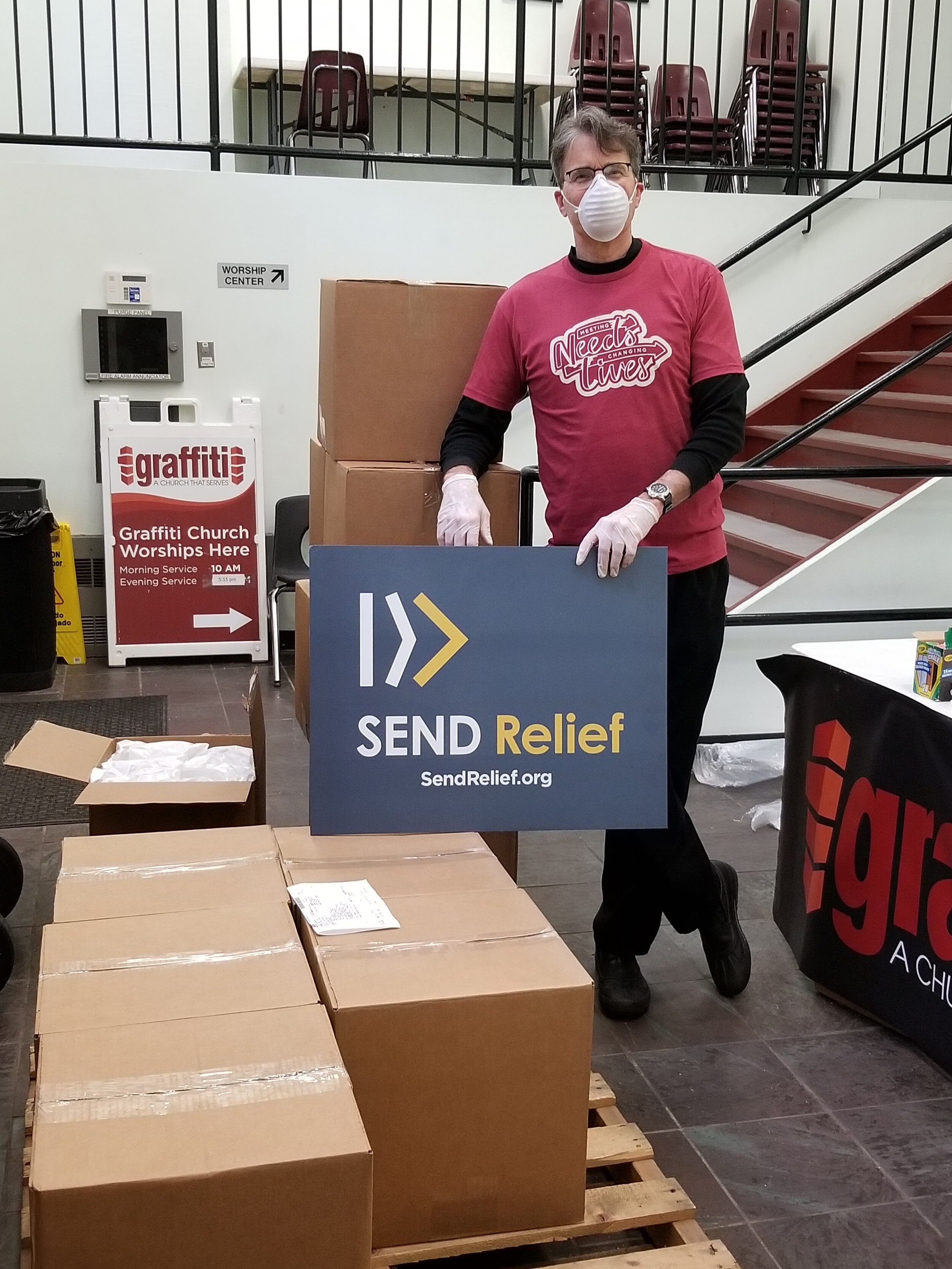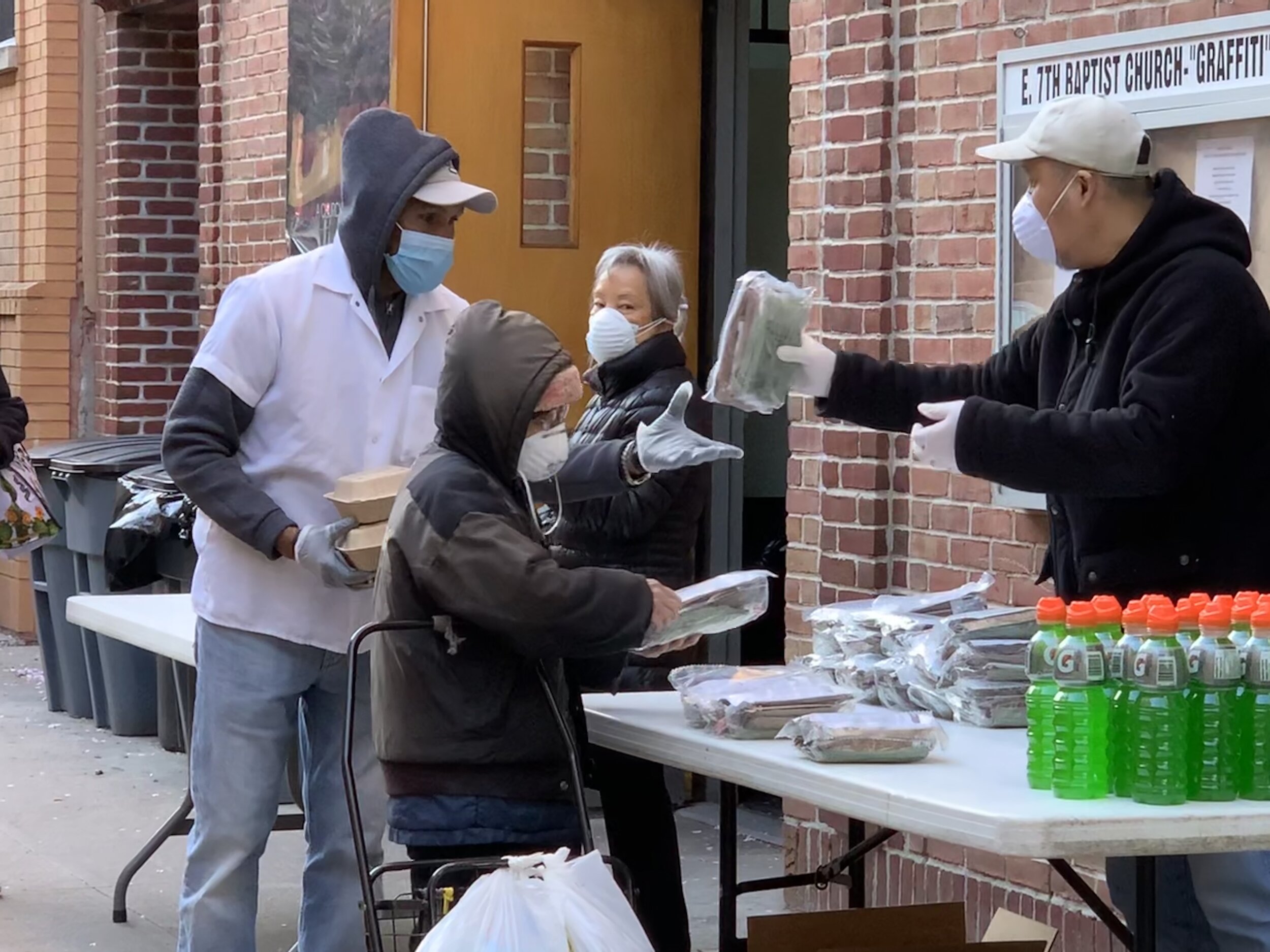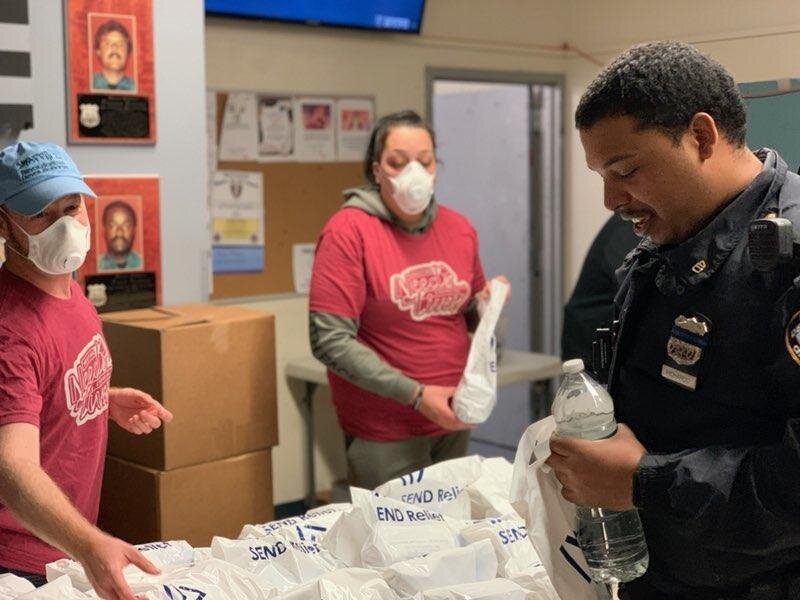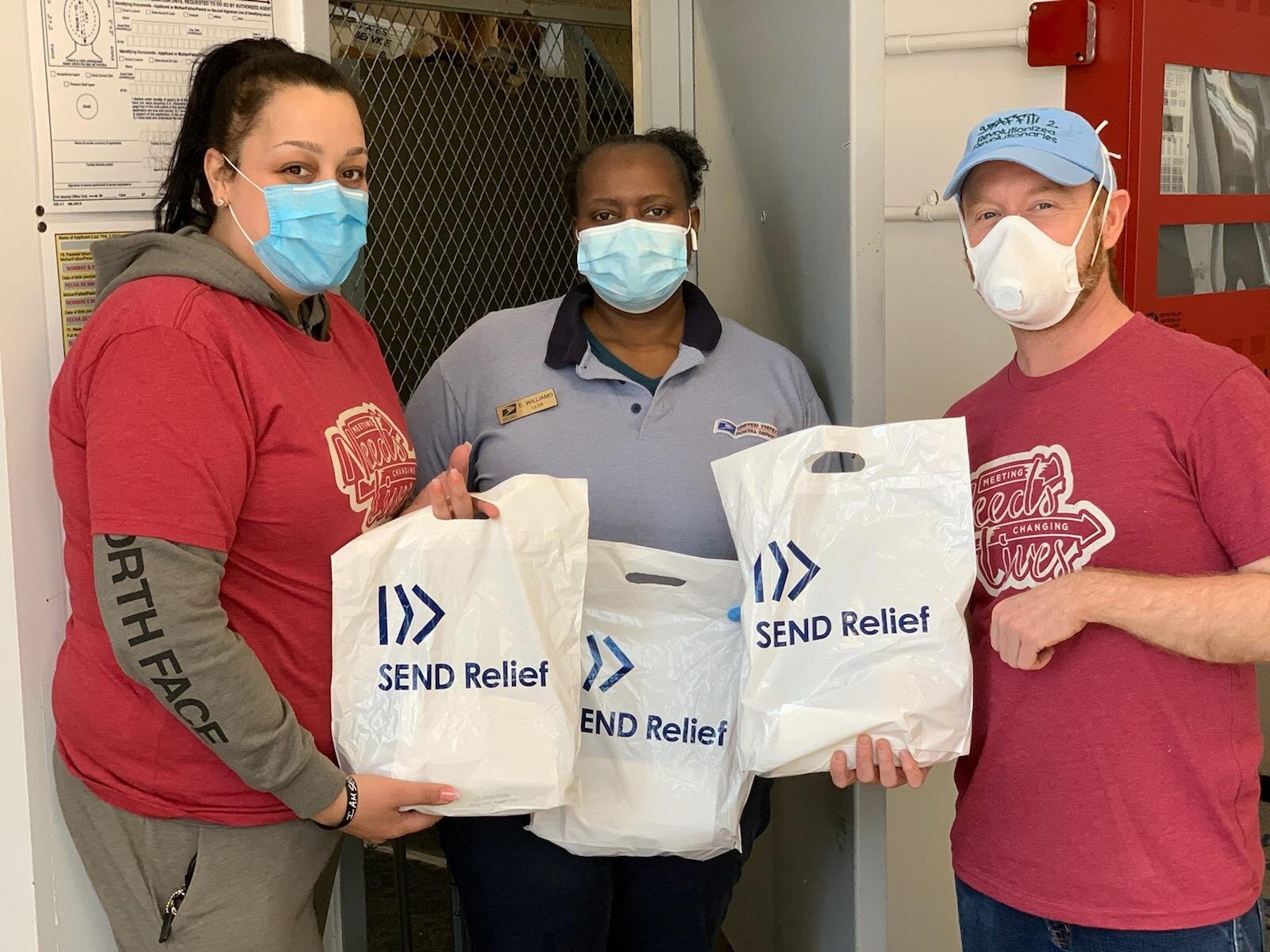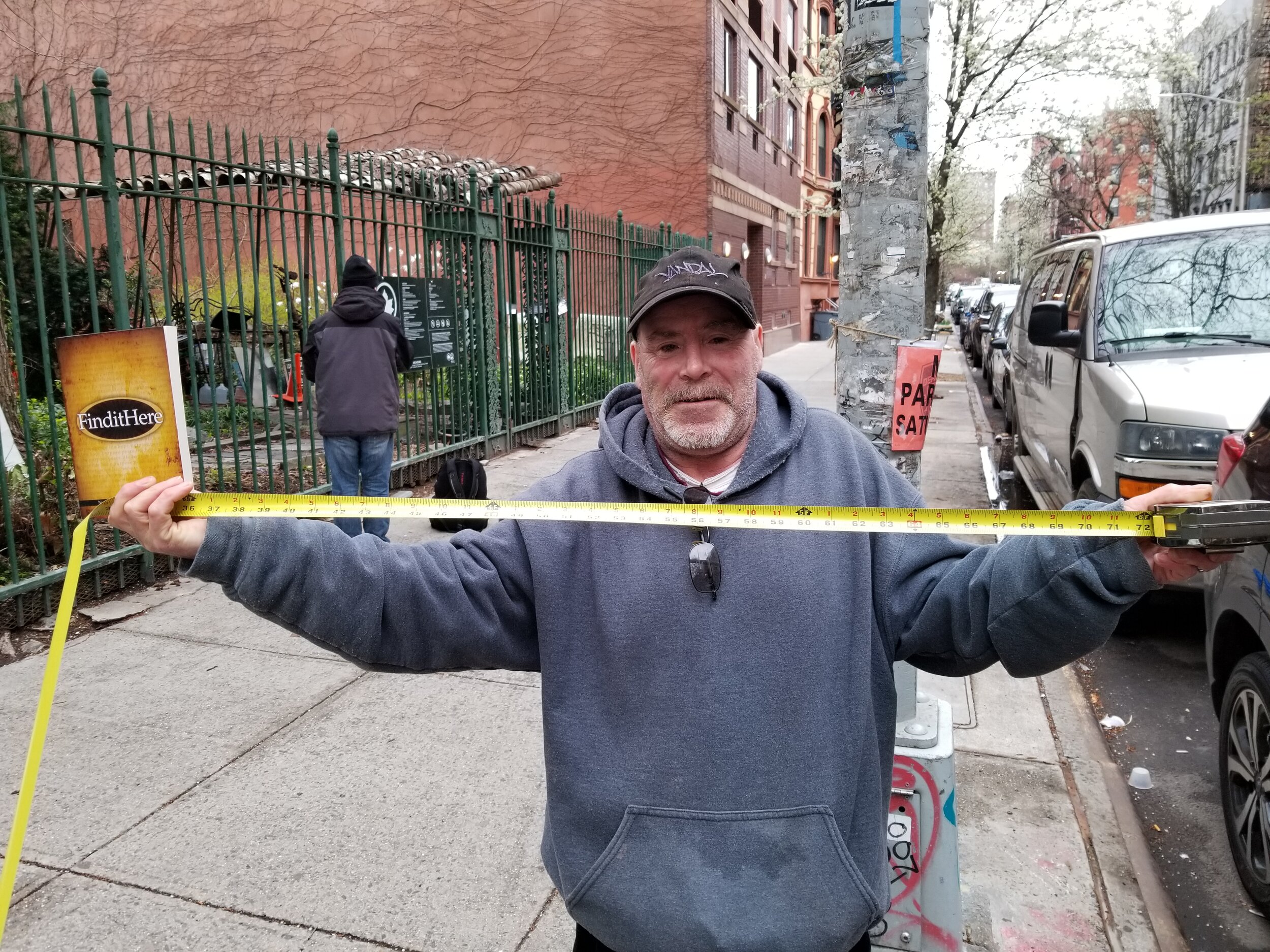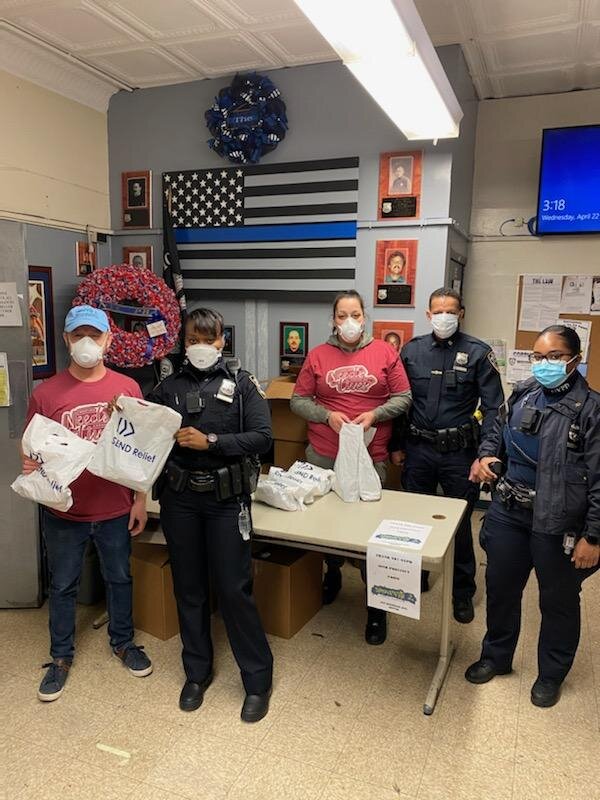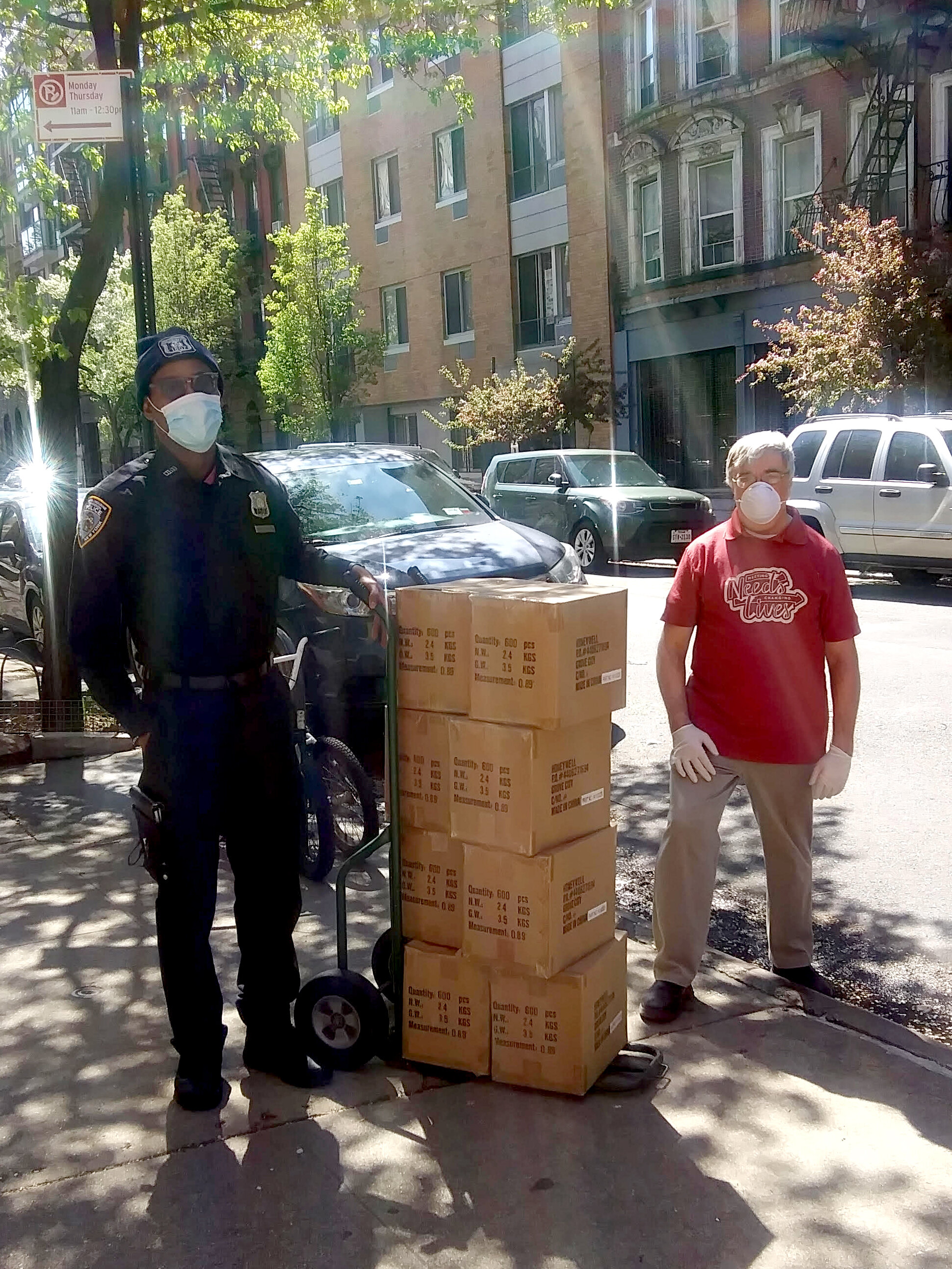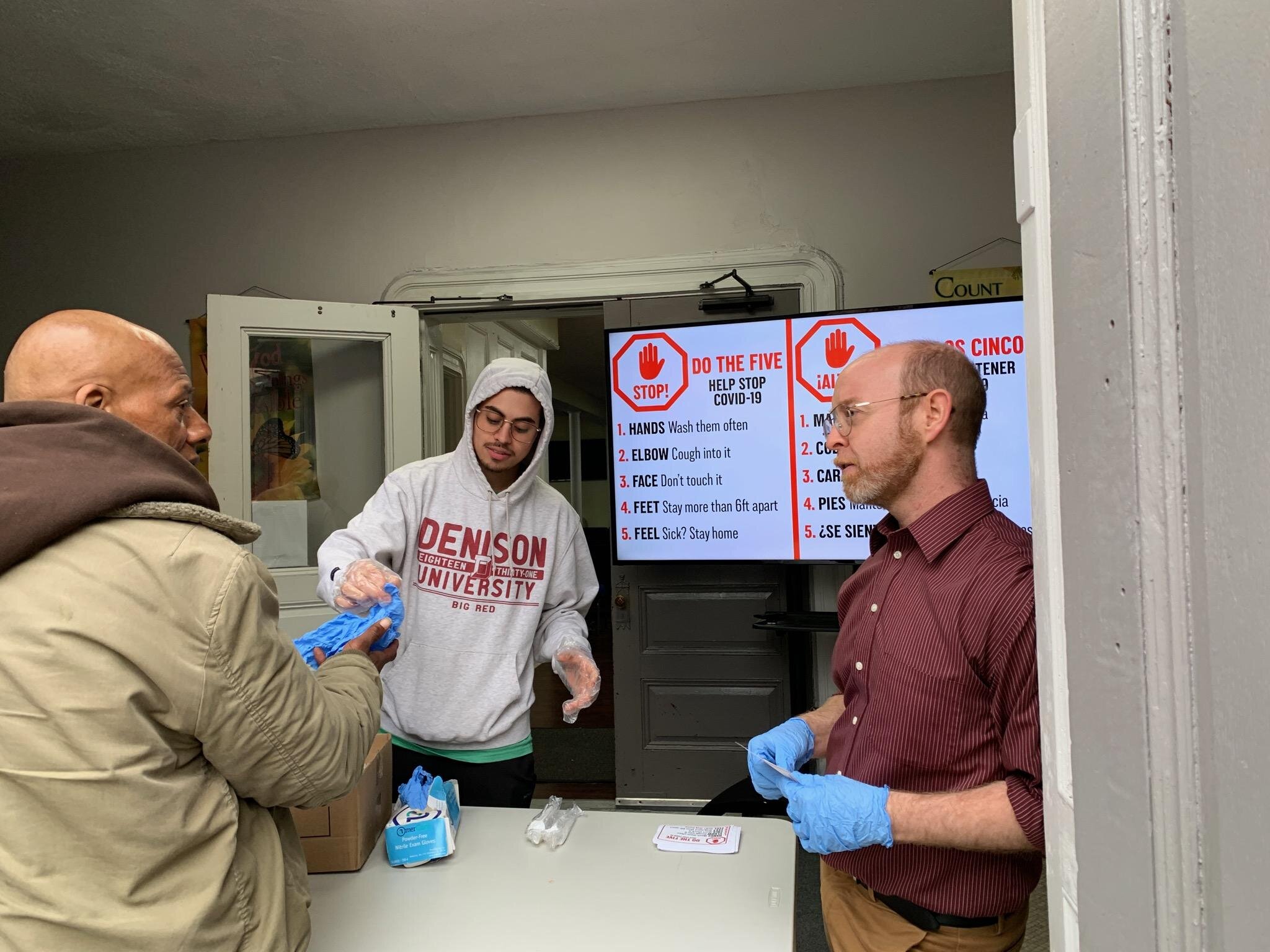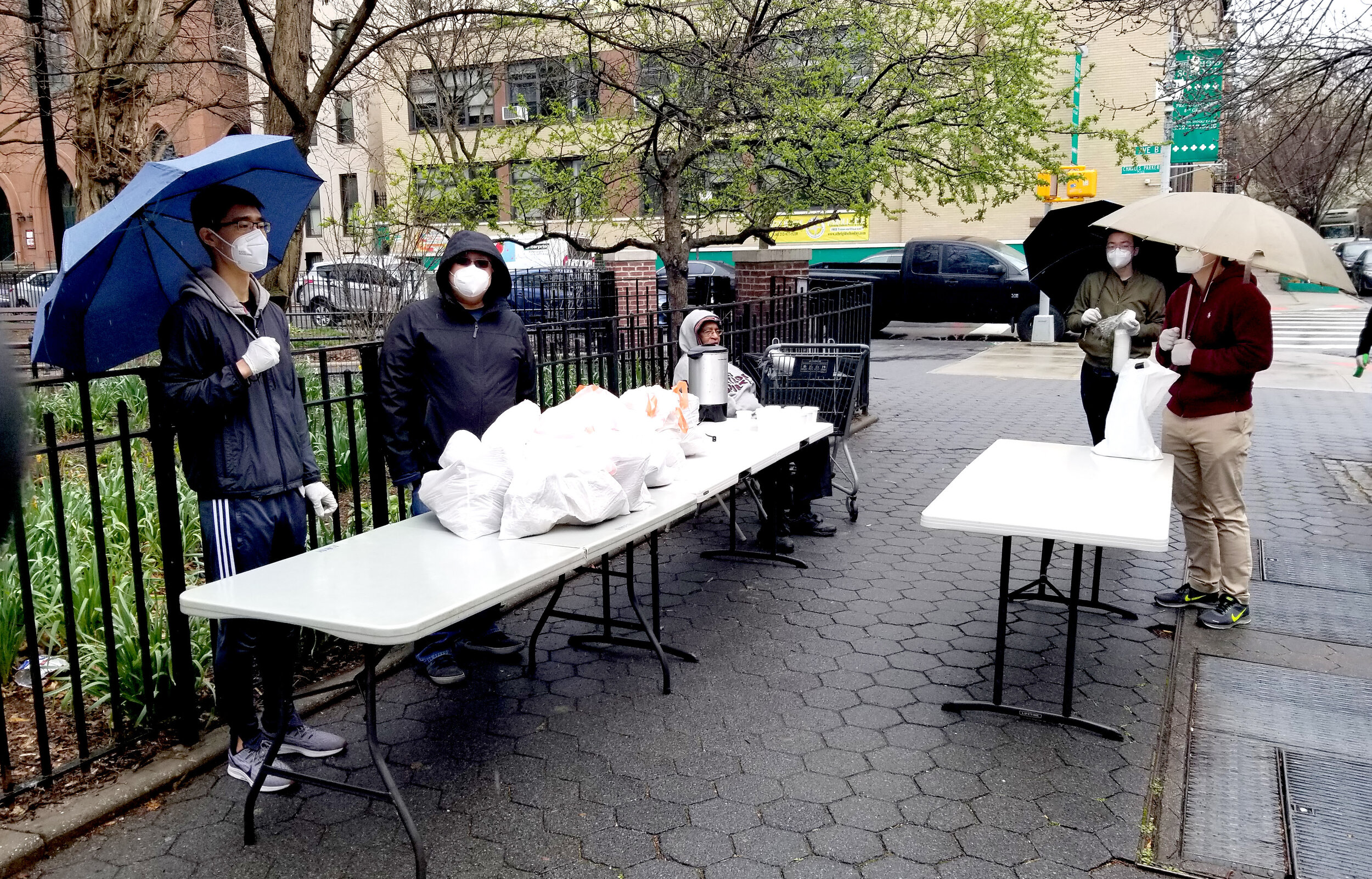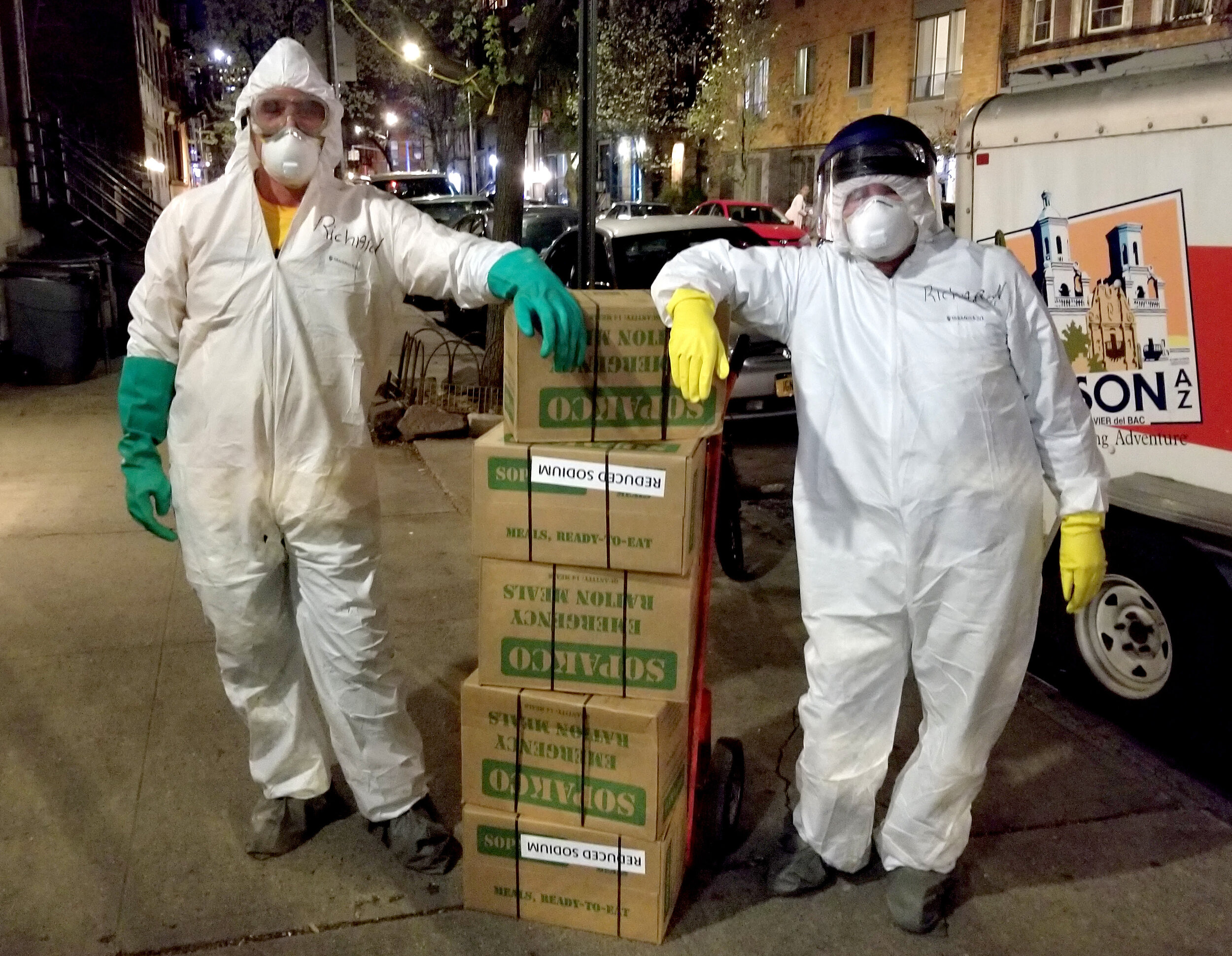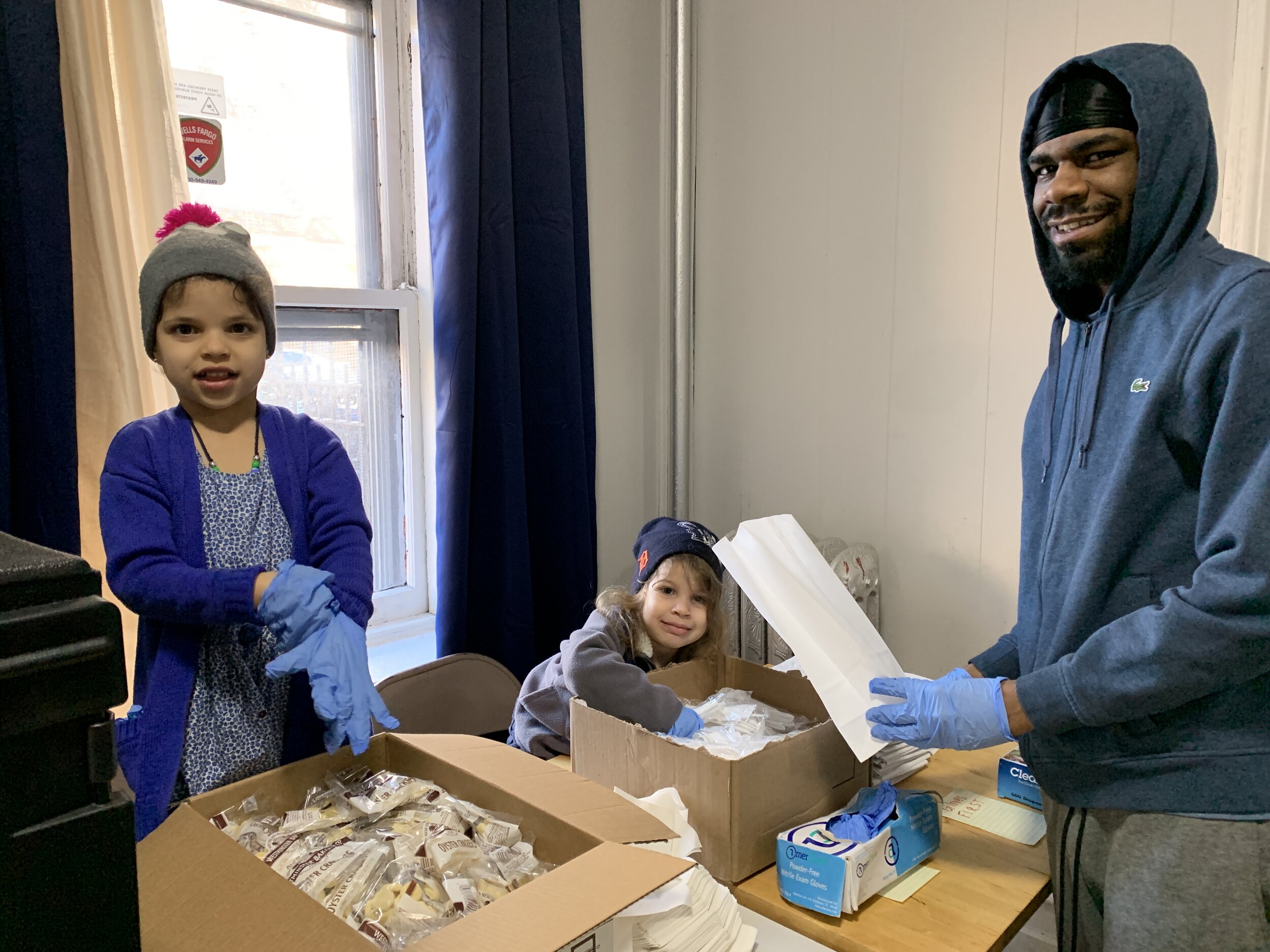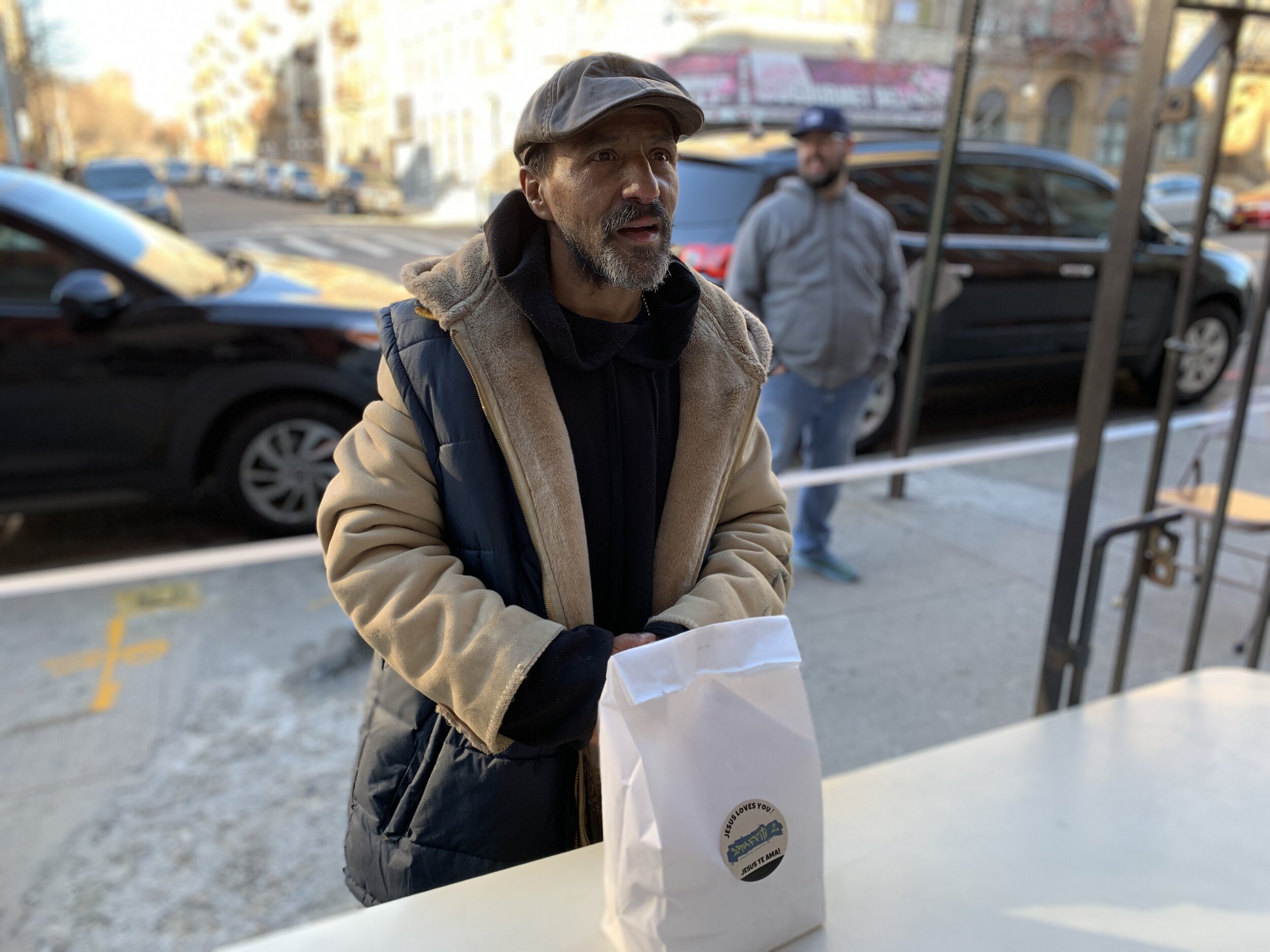COVID-19 RESOURCE PAGE
Upside Down’s aim is to “give courage to Christian believers who want to Meet the Need First.” During these uncertain days, Christians have enormous opportunity in the midst of challenging circumstances. Struggle provides opportunity! This resource page has been created to help Christians and churches find safe and effective responses that will grow faith and ultimately strengthen Christ’s Church. Check back often as resources will be updated as principles and best-practices emerge with the ever-fluid and dynamic circumstances.
PICTURES OF UPSIDE DOWN MINISTRY IN RESPONSE TO COVID-19
PODCASTS
From Send Relief, Stories of Hope is a podcast about people who meet needs, build relationships and change lives. In the episodes featured below, ministers from the Graffiti Network share principles and best practices for ministry in the midst of the COVID-19 crisis.
In the episode linked above titled The Age of Coronavirus Part 1, Taylor Field and Kareem Goubran discuss ministering in the midst of trauma. Their conversation begins at time stamp 6:25.
In the episode linked above titled The Age of Coronavirus Part 3, Taylor Field and Andrew Mann share practical advice about how you can share the love of Christ with people living on the streets, even in a time like this. Their conversation begins at time stamp 7:10.
In the episode linked above titled The Age of Coronavirus Part 4, Taylor Field and Andrew Mann share important principles of self-care. “An overloaded plan can’t fly!” Their conversation begins at time stamp 6:55.
CORONAVIRUS AND THE MOST VULNERABLE
What are things we can do for the most vulnerable in these uncertain times?
Here are four suggestions:
One of the significant things we can do is model the right behavior in whatever we are already doing with those in difficult situations. This means helping people see the value of washing hands, cleaning our tables, social distancing, coughing properly, and so forth. Since many people in tough circumstances may not have access to a cell phone or a TV, we have actually been physically demonstrating the basic things we can do to limit the spread of disease as we minister in open spaces.
In addition, in some cultures on the street, there is an ethos of toughness and resistance to someone telling them about hygiene. Then we need creative ways to appeal to the deep ethos of generosity that underlies the life on the street-- to share the essentials about how we do this for others. We have been saying this--"Look, a brain surgeon doesn't wash his hands for himself, he or she does it for someone else--so the patient will have absolutely the best chance to live."Not all emergencies need the same solution. Some emergencies need us to rush in at all costs. This crisis is a little different--it is one where we need to take pains sometimes to help people confine themselves. It may seem counter-intuitive, since we want to bring people together. It will take discipline to see what is genuine love in these circumstances.
Due to the potential isolation involved with quarantines, we will need to look for new ways to make connectionwith those who are under stress or lonely. What an opportunity to motivate the people in the church to reach out to others who are the most limited. And although making phone calls is uncomfortable for young people, older people really appreciate it, and they are the most vulnerable in this emergency. Even for people on the street, we have new opportunities to structure one-on-one times rather than gathering them in a group.
This coronavirus challenge will probably be a marathon, not a sprint. It is even more important for the pastor or leader to engage in self-care. This means following the Biblical rhythm of work and rest--eating well and sleeping well and exercising. Especially in emerging hotspots for the disease, it may feel like a war zone. We must remind ourselves we can't bear the weight of the world on our shoulders. We are simply not the Savior. We must stop and rest and pray in order to hear what we are to do, to learn to say the "holy no" as well as the "holy yes."
In early church history, non-Christians were often so impressed by how Christians acted in love in times of plague. What an opportunity for us to act in love today. "Yet who knows whether you have come to the kingdom for such a time as this?" Esther 4:14


